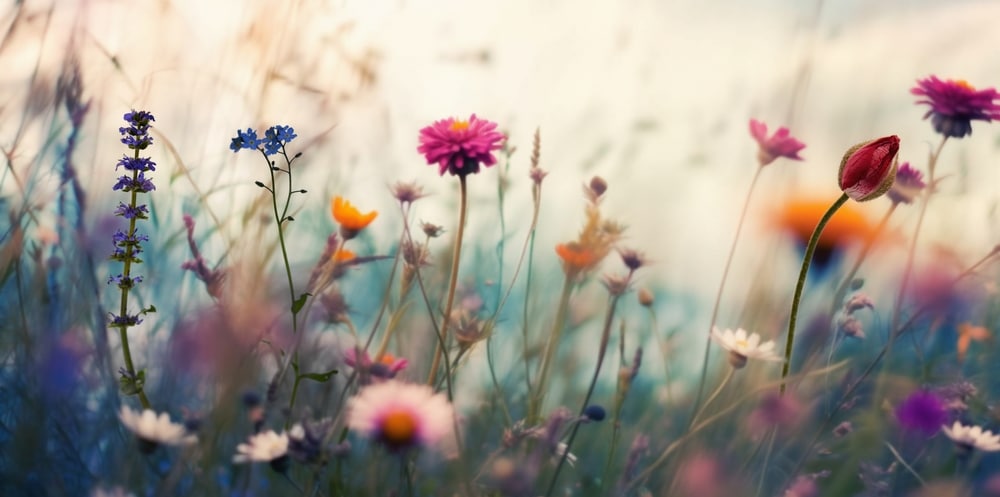“In the rhythm of the earth, we find the rhythm of rest. To rewild our rest is to rewild our souls.”
The deepest form of rest lies in nature
We often think of rest as something to squeeze into the gaps of the day – an extra hour of sleep here, a break between meetings. However, true rest isn’t something that we should schedule in. True rest isn’t just something we do, but something we remember. It’s something we return to – like water returning to the sea.
The deepest form of rest isn’t always found in a quiet bedroom or a meditation app. It can be found in the hush of the wind, the pull of the tide, or the steady whisper of trees swaying overhead. Real rest lives in the living world and when you find it, you can feel it.
So, to rest is to return – not to a place, but to a way of being. A way our ancestors once knew without needing to be taught.
Nature is not a background. It is not separate from us. It is us. Before we lit up our nights with artificial light and carved our available hours up into digital slots, we lived by the rhythms of the land. We rose with the sun, we followed the seasons, we listened to the rain.
And we rested. Not because we earned it, but because it was part of the rhythm.
Rewilding rest means reclaiming rhythm.
To rewild our rest is to loosen the grip of modern life and let our bodies remember what they were made for. It’s not about abandoning the world; it’s about softening back into it.
Walk barefoot on damp grass. Let the earth meet your feet, each step connecting through your soles. I love this feeling – how the chill of morning dew awakens every cell of my body, reminding me that I am rooted in something ancient and alive.
When gardening I don’t always wear gloves, I love to feel the soil with my hands and sense its quiet energy – it’s grounding, nurturing and connects me to the land. Rest isn’t only stillness – it’s this contact, this sensing and a feel of belonging.
Immerse yourself in water. Step into a stream at dawn or let the ocean reach your knees. The cool flow around your body doesn’t just refresh, it resets something much deeper. In that water, every worry seems to trickle away and is carried away in the current.
Let nature in.
Listen to rain instead of playlists. Lie under a tree and let light flicker across your skin. Wander without direction. Let your nervous system catch the rhythm of birdsong and breeze. Just relax and drift away.
Let yourself be touched by the elements. Let wind rush through your clothing and mess up your hair. Feel the bite of cold on your cheeks, the sting of rain on your bare skin. Stand by the sea and let the salt cling to your lips. These aren’t things to shelter from – they are ways the wild invites us back to our senses.
There’s something very primal in standing in the midst of it – in not waiting for a sunny day to go outside, but finding beauty in all weathers. I remember the years I lived just on the edge of Dartmoor. Our water came from a leat on the moor that flowed to the farm, and every single day I would walk up the hill to clear the bullseye – a small round opening that regulated the flow of water to our farm. There were days when I’d trudge through icy rain, my head bent against the wind, hands frozen, soaked to the bone. Yet, there was something fierce and real in it. A kind of waking up. The land was raw and honest, and I met it as I was. No filter. No polish. Just a woman and the wild.
There was a stillness within me that I touched in those moments – something wordless and solid. The wind in my face, the mud on my boots, the physicality of it – it reached deeper than relaxation. It was a merging with something elemental. I accessed a place inside myself that was rugged, quiet and authentic truth. It was as though nature gave me an internal compass, not to direct me somewhere, but to remind me of how it feels to be rooted. There was order in the chaos of the moor – a kind of wild logic that made everything else feel small and far away. And in that honesty, there was rest.
When we find this, rest shifts from being a solution to a problem, it becomes a way of living.
Science, nature and something deeper.
Science has a lot to say here, too. Forest bathing (Shinrin-yoku) has been shown to lower cortisol levels, reduce heart rate, and calm an overstimulated nervous system. Exposure to trees boosts our immune system through phytoncides – natural oils released by plants. Soil carries diverse microbiomes that interact with our skin and even our nervous system, supporting gut health and immunity. Simply walking barefoot – grounding – has been found to reduce inflammation, improve sleep and balance our body’s electrical charge.
Natural light, especially in the early morning, helps to reset our circadian rhythms far more effectively than any supplement ever could, gently signalling to our body when to rise and when to rest.
But beyond the data is something older. Something unmeasured.
There is a kind of exhale that happens only in the presence of nature. A kind of softening. A settling. There’s a remembrance that awakens when skin meets sunlight, when feet touch earth, when fingers brush the bark of an old tree. No chart can explain that moment when a breeze feels like a whisper from something bigger than you. But your body knows.
It knows how to rest in the hush between rustling leaves. It knows how to trust the rhythm of the tide. It knows how to return to itself when the wild world welcomes it back.
Rest is a wild language
Rest is not the absence of effort. It’s the presence of harmony. It is what happens when we stop wrestling with time and begin dancing with it again.
Things you can do to rewild your rest:
- Walk barefoot – let the ground speak directly to you.
- Feel the soil by gardening without gloves – let your hands be part of the soil’s story.
- Sit beneath the sky – watch the clouds like an animal at ease.
- Rise with the sun when you can, and dim the lights when it sets.
- Stand in the wind, feel the rain on your face, don’t wait for perfect weather – rest with the wild, not against it.
These aren’t tasks to tick off. They are ways to reconnect. To soften. To belong again.
Stepping out of the noise
Our modern culture doesn’t make this easy. The speed, the stimulation, the constant connectivity – it all pulls us further away from the land and into the machine of life. We’re told to be efficient. To be online. To be productive. But nature doesn’t rush. Nature doesn’t hustle.
And neither should rest.
Before electric lights and television, rest came with the dusk. With the winter. With the knowing that we cannot always bloom, just like the flowers, we need time to restore – to enable us to bloom again.
Rewilding our rest is vitally important for our wellbeing. It is remembering that we are not made to be endlessly available. We are not made to be content-producing machines. We are part of the ecosystem; and ecosystems rest.
Story: The Whispering Moor
Isabel had lived most of her life in the city – in its noise, its edges, its momentum. She had built a career, filled her calendar and learned to survive in a world that moved fast and never stopped. But somewhere along the way, the pace she had kept so proudly had turned on her. She was exhausted, her body weary and her mind refusing to rest. It was as though the city had seeped into her – always buzzing, always switched on and she knew she couldn’t accept this anymore.
When she finally left, it wasn’t dramatic. No grand escape. Just a quiet move to the edge of Dartmoor, to a weathered cottage and a patch of land where the silence felt almost too loud at first. She thought the change of scene would fix the exhaustion. But the stillness unnerved her. She didn’t know how to stop. Not really.
It took time. And then one evening, with the wind rising and the hills darkening in mist, something in her gave way. She stepped outside and followed the old sheep path beyond her gate. The moor unfolded before her – vast, raw and untouched. The air was thick with the scent of gorse and peat. It was cold. Wild. Honest.
She walked until her feet ached and her breath softened. And then she lay down – right there on the damp earth, heather brushing against her skin. The land didn’t ask her to be anything. It simply accepted her as she was.
And as she rested, something shifted. The tension in her chest, the weight in her limbs, the swirl of thoughts – became quiet.
The moor whispered to her, not in words, but in something older. Something deeper. A knowing. A remembering.
She realised she had not come to escape life. She had come to find it again – the part of her that had been buried beneath deadlines and demands.
That night, beneath a sky wild with stars, Isabel did not just sleep.
She rested.
And in that rest, she didn’t just recover – she returned.

